[Newsbits] 14-15.02.2024: Hori Habba, PM-WANI, Kaji Nemu & More
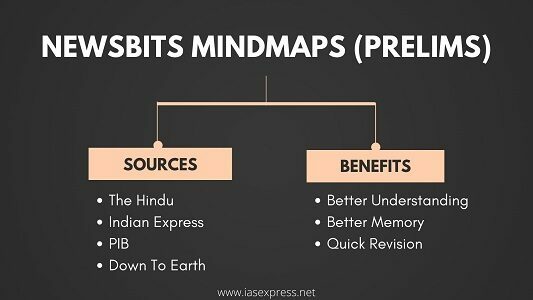
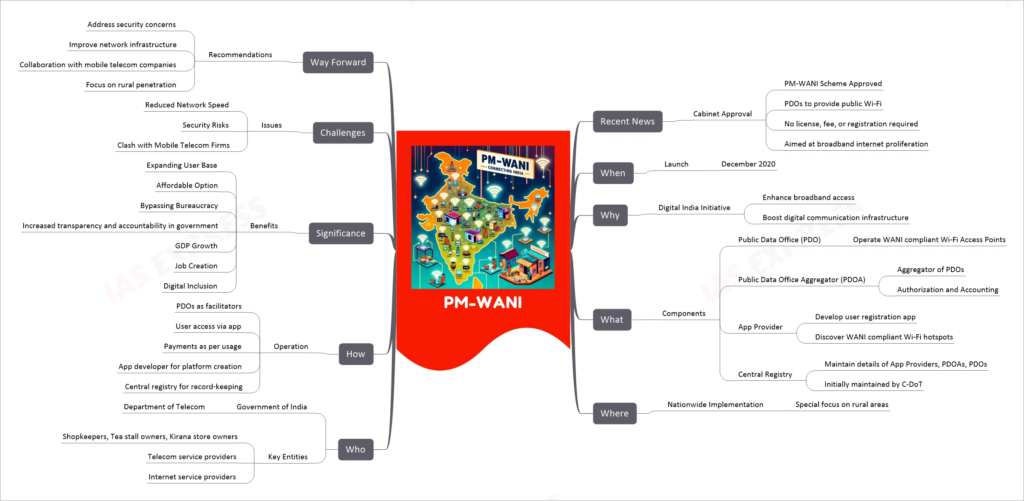
PM-WANI (Prime Minister’s Wi-Fi Access Network Interface) is an initiative launched by the Government of India to enhance the penetration of public Wi-Fi hotspots throughout the nation, particularly in rural areas. The scheme aims to democratize internet access by allowing entities like shopkeepers and small business owners to set up public Wi-Fi hotspots without needing any license, registration, or fee. It is part of the broader Digital India initiative, striving to improve the country’s digital communication infrastructure and increase internet users. Key components of PM-WANI include Public Data Offices (PDOs), Public Data Office Aggregators (PDOAs), App Providers, and a Central Registry. The scheme is anticipated to expand internet user base, boost GDP, create jobs, and enhance transparency in government functioning, although it also faces challenges like potential network speed reduction and security risks.
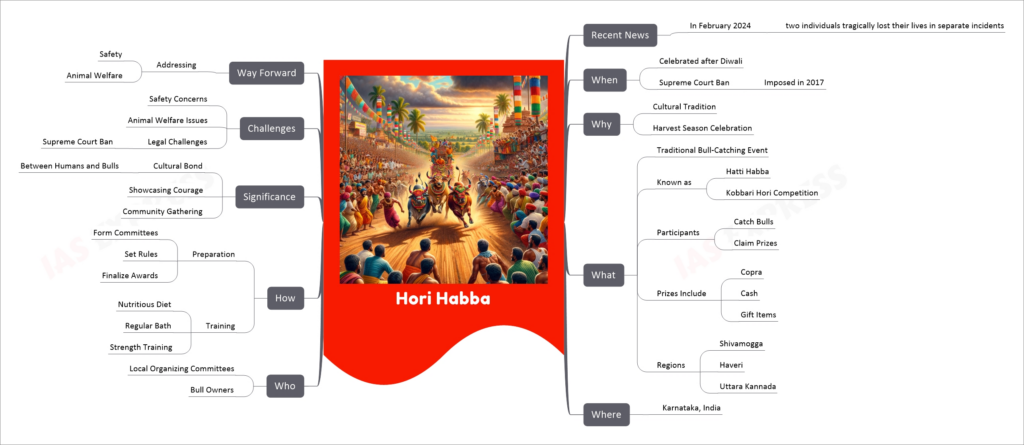
Hori Habba, celebrated in Karnataka, India, primarily after Diwali during the harvest season, is a traditional bull-catching event deeply rooted in local culture. Known also as Hatti Habba or Kobbari Hori Competition, it involves releasing trained and decorated bulls into large crowds, where participants try to catch them to win prizes like copra, cash, or other items. The festival symbolizes the cultural bond between humans and bulls, showcasing the community’s courage and unity. However, the event has faced legal challenges, including a Supreme Court ban in 2017 due to safety and animal welfare concerns. Efforts to address these issues are crucial for the festival’s continuation and cultural preservation.
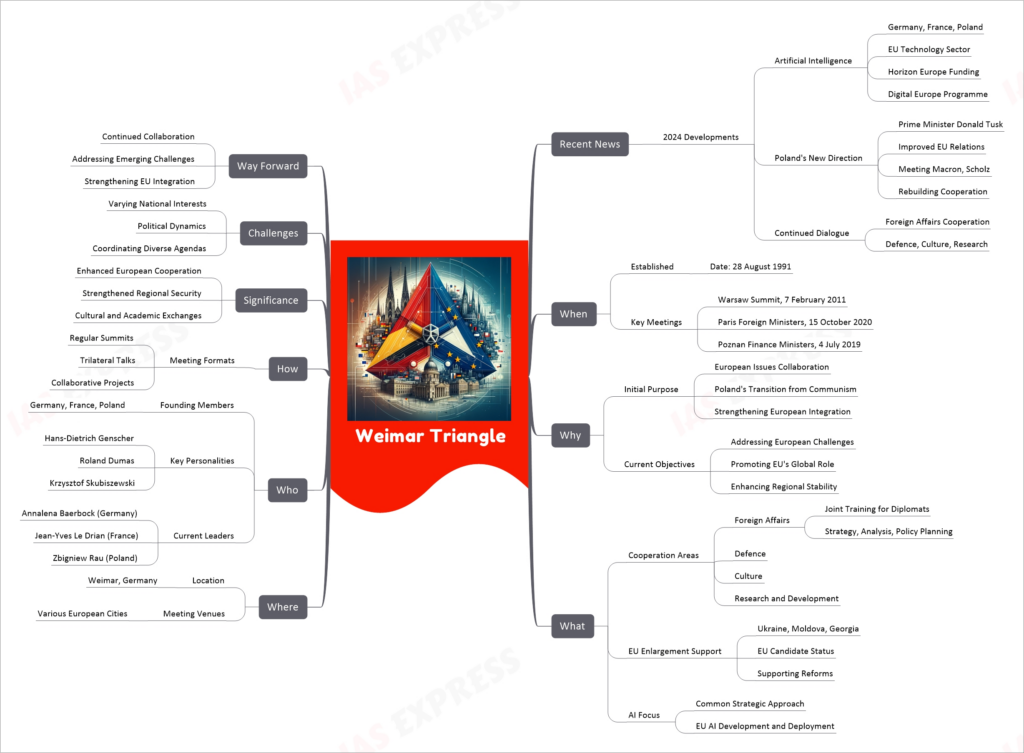
The Weimar Triangle is a trilateral group formed by Germany, France, and Poland in 1991. Initially aimed at supporting Poland’s transition post-communism and strengthening European integration, it now focuses on a broader range of issues including foreign affairs, defense, culture, and research. Recent developments include a focus on Artificial Intelligence within the EU, with significant funding and strategic initiatives. Regular meetings at various levels (heads of state, foreign ministers, finance ministers) facilitate cooperation. The Weimar Triangle has evolved to address current European challenges, support EU enlargement, and contribute to regional stability and security.
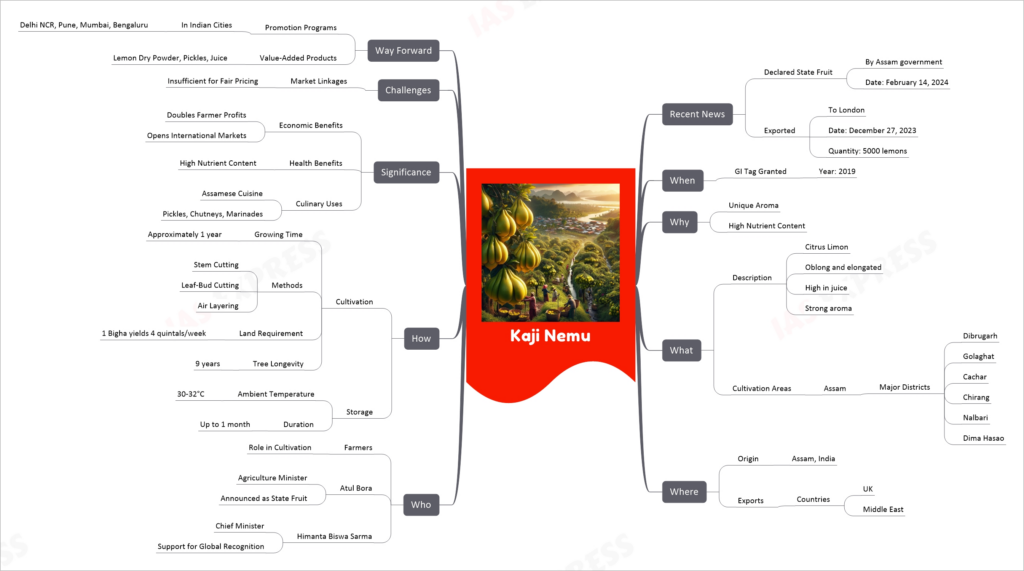
Kaji Nemu, also known as Assam Lemon (Citrus Limon), is a unique variety of lemon indigenous to Assam, India. It stands out for its elongated, oblong shape, high juice content, and distinct aroma. Recently declared the State Fruit of Assam, Kaji Nemu has received a Geographical Indication (GI) tag in 2019, acknowledging its unique regional characteristics. This lemon variant plays a vital role in Assamese cuisine and is gaining popularity internationally, with recent exports to London. It’s cultivated using methods like stem cutting, leaf-bud cutting, and air layering. Kaji Nemu’s cultivation offers economic benefits to local farmers and contributes to the regional and national economy. The state government of Assam has initiated promotional programs to enhance its market presence both nationally and globally.
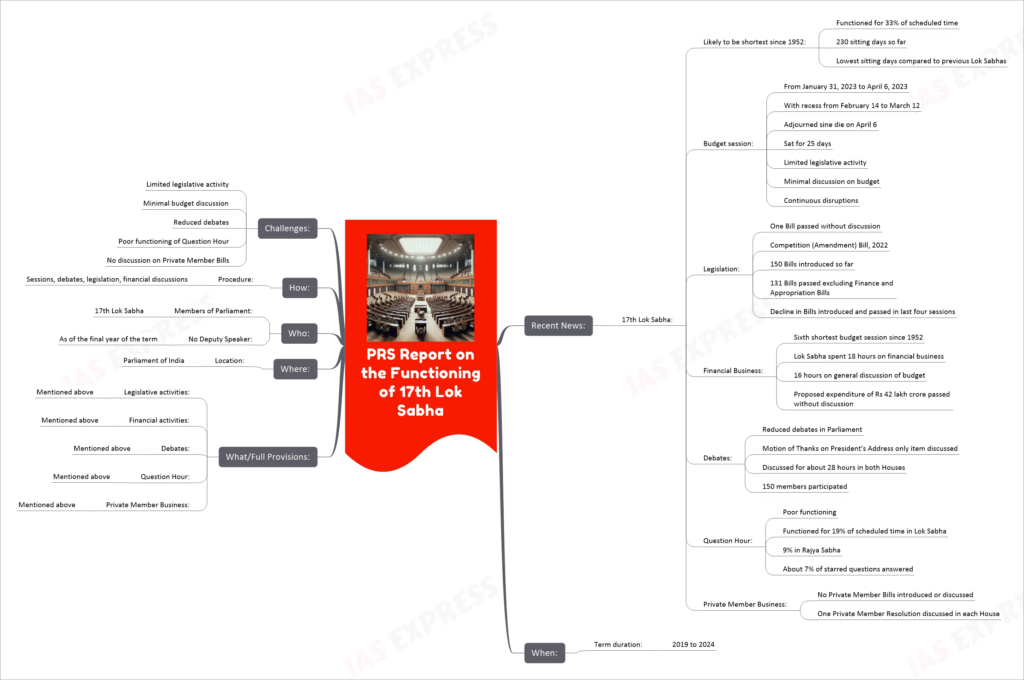
The PRS report on the 17th Lok Sabha reveals that it’s likely to be the shortest full-term Lok Sabha since 1952. The session saw limited legislative activity and minimal budget discussion amidst continuous disruptions. Only one bill was passed without discussion, and the proposed expenditure was approved without debate. The Lok Sabha functioned for only 33% of its scheduled time, with poor performance during Question Hour and no discussion on Private Member Bills. Debates in Parliament were significantly reduced, highlighting challenges in legislative efficiency and accountability.
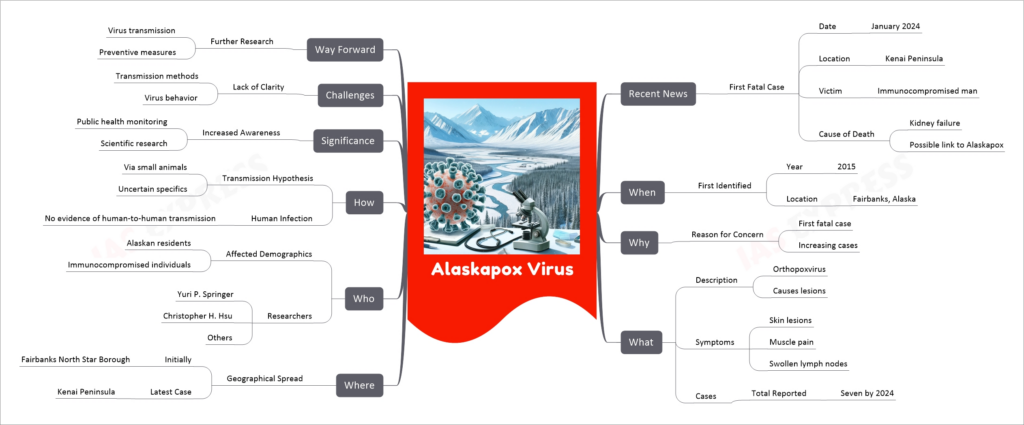
The Alaskapox virus, first identified in Fairbanks, Alaska, in 2015, is an orthopoxvirus causing skin lesions, muscle pain, and swollen lymph nodes. As of early 2024, seven cases have been reported, including the first fatal case on the Kenai Peninsula in January 2024. The victim, an immunocompromised man, died due to kidney failure with a possible link to Alaskapox. The virus is hypothesized to be transmitted from small animals, although specific transmission methods remain unclear. There’s no evidence of human-to-human transmission. The recent fatal case has heightened awareness and necessitates further research on the virus’s transmission and prevention.
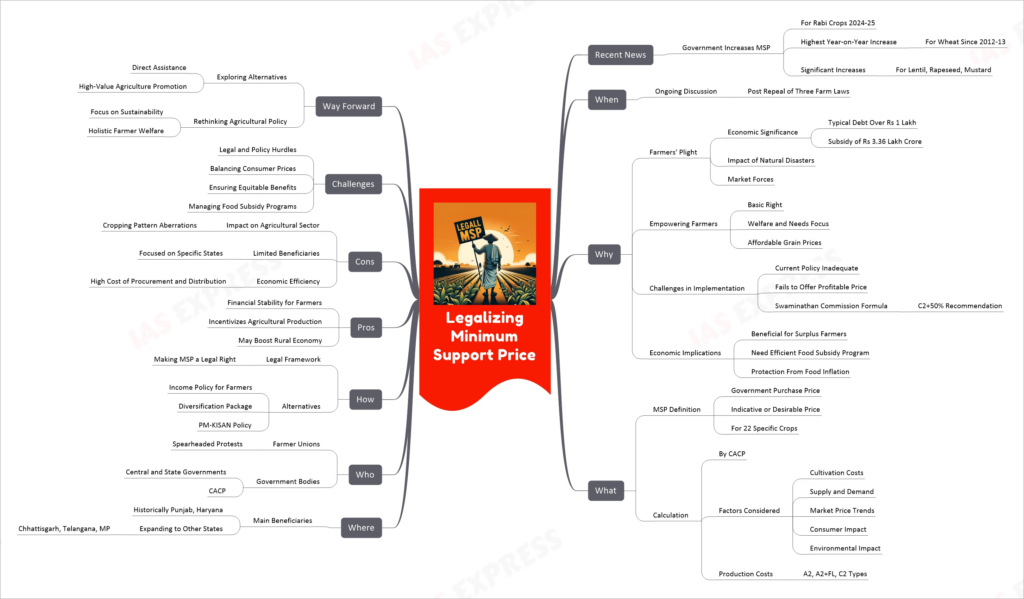
Legalizing the Minimum Support Price (MSP) in India is a complex and multi-faceted issue. The MSP is a government-set floor price for purchasing agricultural products from farmers, intended to ensure financial stability and prevent economic distress due to market fluctuations. The recent discourse around making MSP a legal right stems from the ongoing challenges faced by farmers, including high debt, the impact of natural disasters, and market forces. The calculation of MSP by the Commission for Agricultural Costs & Prices (CACP) involves various factors like cultivation costs and market trends. While there are potential benefits to legalizing MSP, such as financial stability for farmers and boosting the rural economy, it also poses challenges like potential cropping pattern aberrations and limited benefits, mainly focusing on specific states. The way forward may involve exploring alternatives like direct assistance to farmers and promoting high-value agriculture, along with a holistic rethinking of agricultural policy.
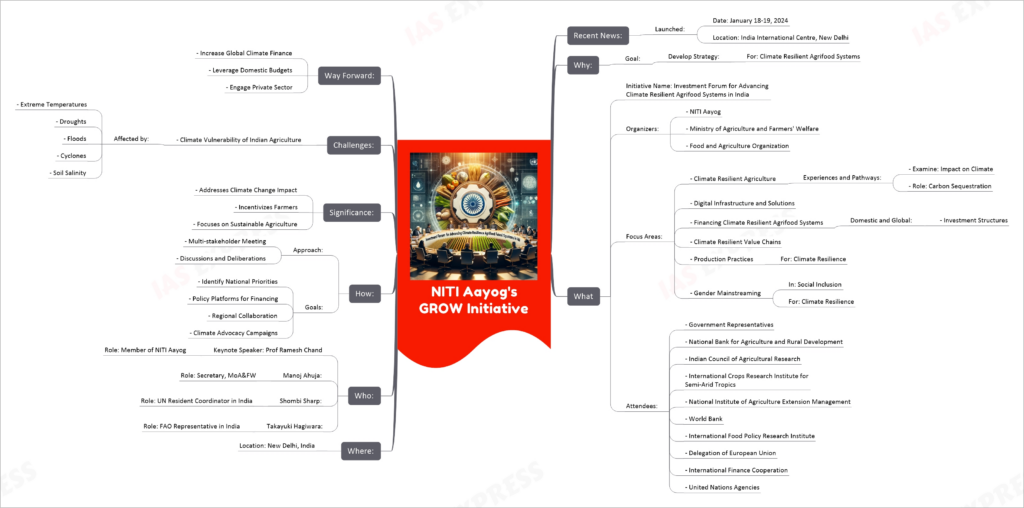
The NITI Aayog’s GROW initiative, known as the “Investment Forum for Advancing Climate Resilient Agrifood Systems in India,” is a partnership between NITI Aayog, the Ministry of Agriculture and Farmers’ Welfare, and the FAO. Launched in January 2024, it aims to develop strategies for climate-resilient agrifood systems in India. The initiative focuses on areas like climate-resilient agriculture, digital solutions, financing, and gender mainstreaming. It involves multiple stakeholders, including government, international organizations, and private sectors, to address challenges in Indian agriculture due to climate change and to promote sustainable practices.
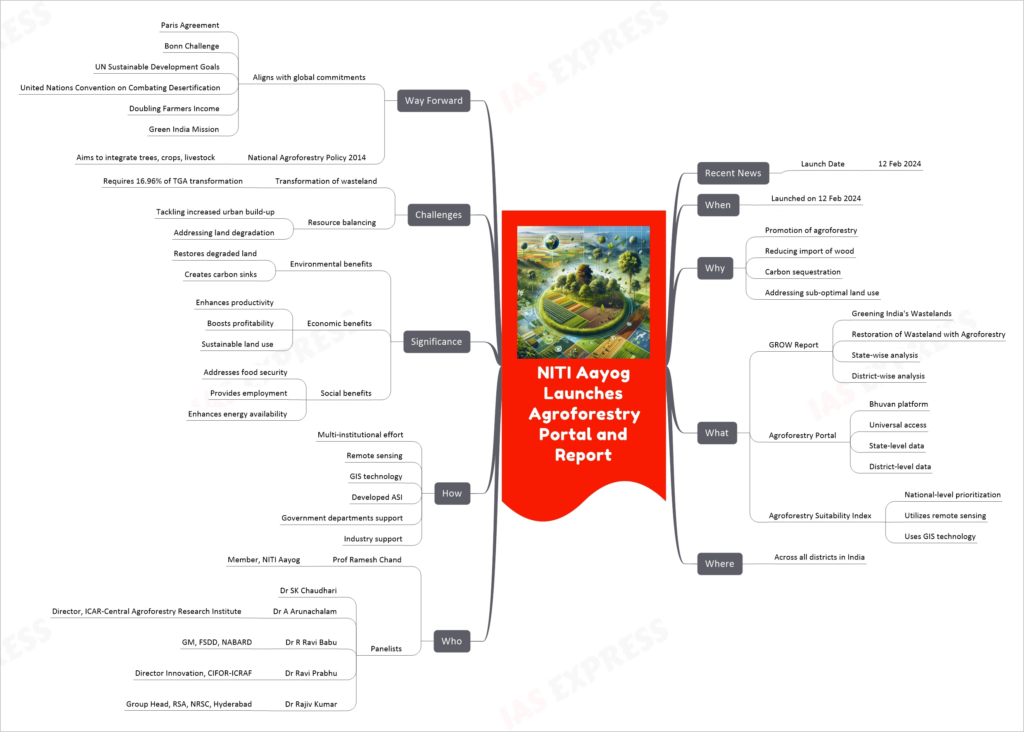
NITI Aayog has launched the “Greening India’s Wastelands with Agroforestry (GROW)” report and portal on February 12, 2024, marking a significant step in India’s agroforestry initiatives. This multi-institutional effort, led by NITI Aayog, employs remote sensing and GIS technology to develop an Agroforestry Suitability Index (ASI) for all Indian districts. The GROW report offers detailed state-wise and district-wise analysis, aiding in greening and restoration projects. The portal, hosted on Bhuvan, provides universal access to this data. The initiative aims to enhance land productivity, combat climate change through carbon sequestration, and optimize land use, particularly transforming wastelands. It aligns with various global commitments and India’s National Agroforestry Policy 2014, focusing on integrating trees, crops, and livestock to address multiple challenges, including food security, employment, and environmental sustainability.
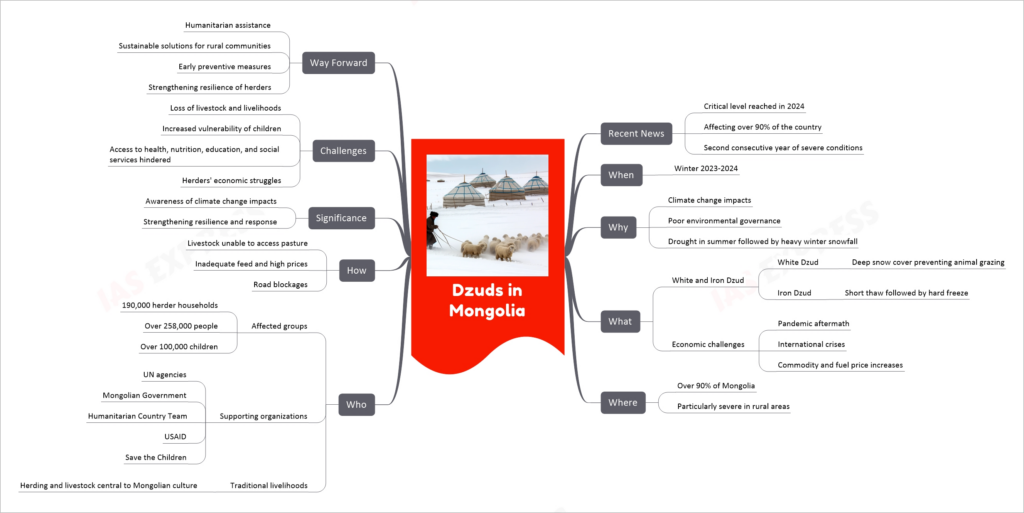
Dzuds in Mongolia refer to a severe and unique weather phenomenon characterized by extremely cold winters with heavy snow and ice, hindering livestock from accessing pasture. In the winter of 2023-2024, Mongolia faced a critical level of dzud, affecting over 90% of the country. This situation, exacerbated by climate change and poor environmental governance, has led to considerable hardships for over 190,000 herder households, affecting their livelihoods and the well-being of over 258,000 people, including children. The dzud has brought to light the urgent need for humanitarian assistance and sustainable solutions to support Mongolia’s rural communities, highlighting the significance of resilience against climate change and economic challenges.
If you like this post, please share your feedback in the comments section below so that we will upload more posts like this.
